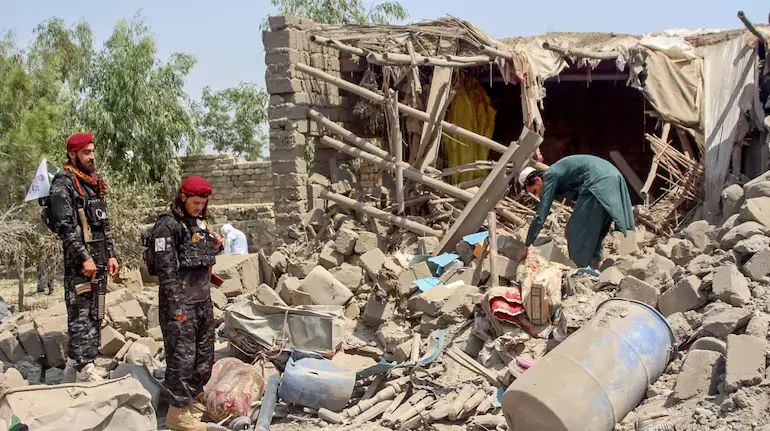Tensions have surged along the Durand Line following allegations from the Taliban government in Afghanistan that its forces have killed 58 Pakistani soldiers during recent overnight operations on the border. Afghan authorities further claimed that 25 Pakistani army posts were captured and that 30 soldiers were wounded in retaliatory attacks, which they attributed to Pakistan’s repeated violations of Afghan territory and airspace.
During a press conference, Taliban spokesperson Zabihullah Mujahid asserted that the situation along both official and de facto borders is “under complete control,” indicating that illegal activities have largely been thwarted. The operations reportedly transpired after claims surfaced that Pakistan conducted airstrikes targeting areas in Kabul and eastern Afghanistan, including civilian markets. Islamabad has yet to confirm these airstrike allegations officially.
The Afghan Defence Ministry labeled the military operations as “retaliatory and successful,” issuing a stern warning that further violations of Afghan territorial integrity would provoke strong responses. This escalation has significantly impacted cross-border trade, leading to delays in the opening of the Torkham border crossing, a critical trade route between Afghanistan and Pakistan.
Pakistan has accused Afghanistan of sheltering militants from the Tehreek-i-Taliban Pakistan (TTP), who have perpetrated a series of deadly attacks within Pakistani territory. In response, the Afghan government has denied these allegations, insisting that its territory is not utilized for actions against other nations. Pakistani Prime Minister Shehbaz Sharif condemned the actions of Afghanistan, asserting that the Pakistani Army provided a “befitting reply” by destroying several Afghan posts and forcing a retreat.
The escalating conflict has prompted international concern. Qatar has urged both parties to engage in dialogue, diplomacy, and exercise restraint, while the Saudi Foreign Ministry has echoed these calls for de-escalation and dialogue to help maintain regional stability. Analysts have observed that recent strategic developments, such as a mutual defense agreement between Saudi Arabia and Pakistan, could further influence the dynamics of the situation.
Reports from a senior Pakistani security official indicated that Afghan forces initiated gunfire across several northwestern border areas in Khyber Pakhtunkhwa, such as Chitral, Bajaur, Mohmand, Angoor Adda, and Kurram. In retaliation, Pakistani troops reportedly responded with heavy artillery fire in the Tirah region of Khyber district and across the border in Nangarhar province of Afghanistan.
The Durand Line, a long-disputed border of 2,611 kilometers, remains a consistent flashpoint in Pakistan-Afghanistan relations as Afghanistan continues to reject its recognition as an official border. This enduring territorial dispute underscores the risk of further military confrontations in an already volatile region.






